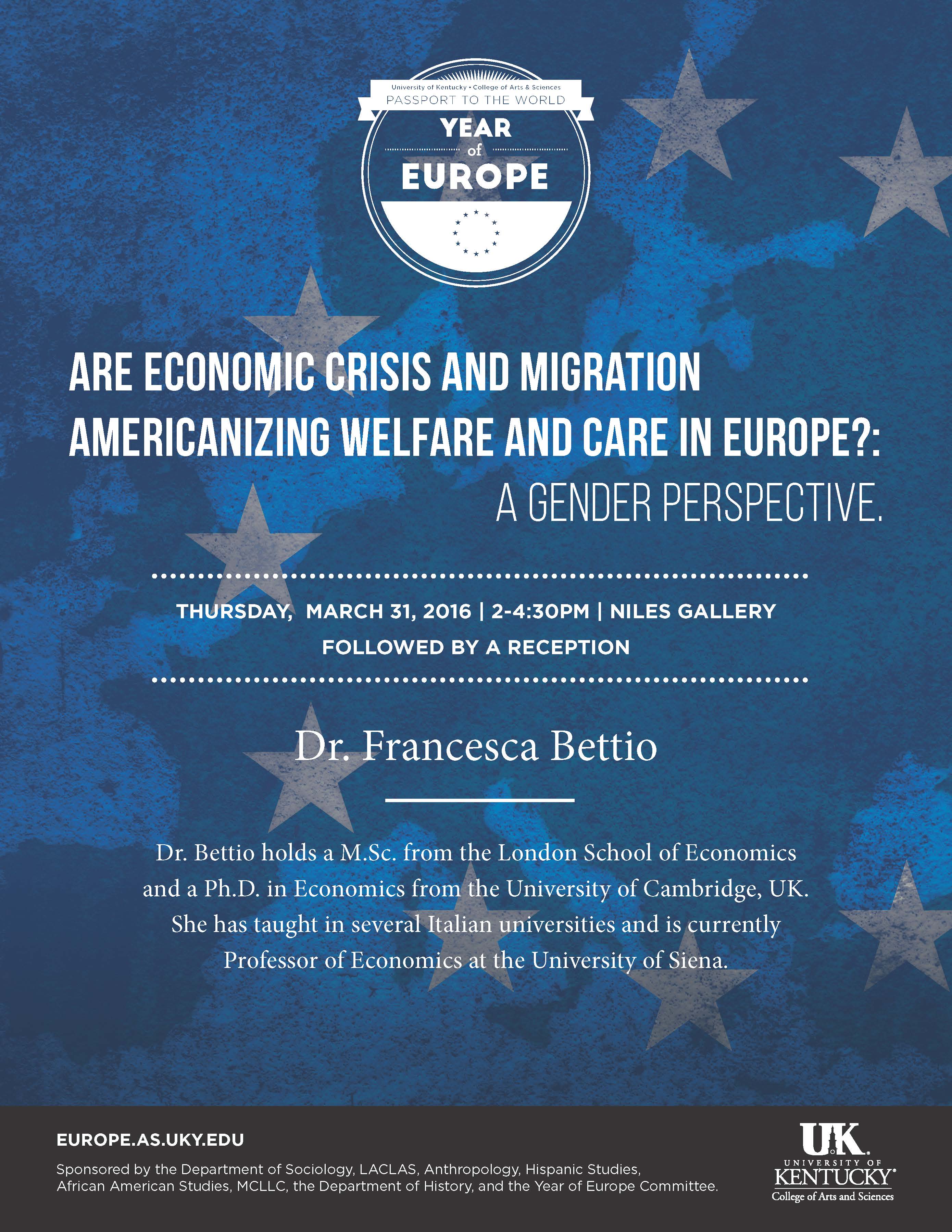Gender, Immigration, Labor Markets, and the Welfare State in Contemporary Europe

Date:
Location:
Niles Gallery
Tags/Keywords:
Event Series:


For more information on the film series "Europe Through the Lens: a Festival of Contemporary European Films" visit http://libguides.uky.edu/eurofilm.
For more information on the film series "Europe Through the Lens: a Festival of Contemporary European Films" visit http://libguides.uky.edu/eurofilm.
For more information on the film series "Europe Through the Lens: a Festival of Contemporary European Films" visit http://libguides.uky.edu/eurofilm.